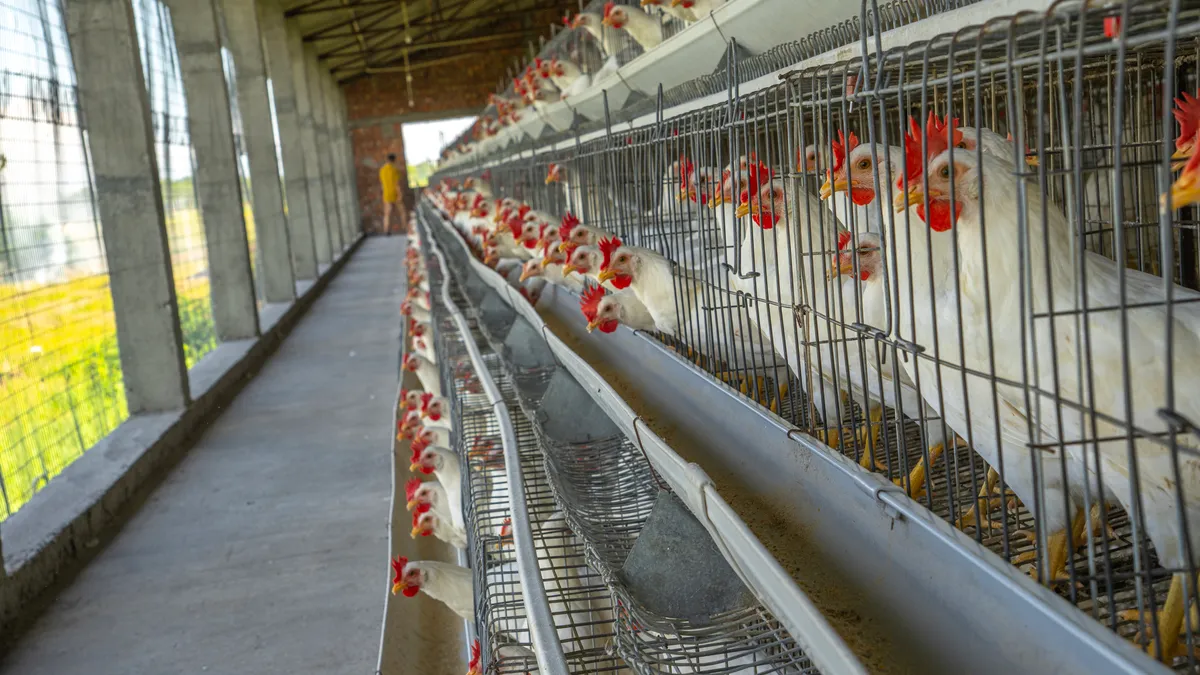Dive Brief:
- The Department of Justice in a complaint on Friday alleged an information provider, Agri Stats, has for years helped poultry and pork producers keep prices high and wages low in violation of antitrust laws by providing data intelligence that only its participating producers can access.
- The information is detailed enough, DOJ says, that participants can adjust their prices and costs based on what their competitors are doing, giving them commanding control over markets. “Participating meat processors … use the data to set prices and output levels [that result in] consumers paying more for chicken, pork and turkey,” said Jonathan Kanter, DOJ’s assistant attorney general overseeing in on antitrust enforcement.
- This isn’t the first time DOJ has come after the company. It launched a two-year investigation into its business practices in September 2010, a 2022 court filing shows. But it walked away without filing charges or recommending any business changes. “DOJ … recognized that there was no evidence of wrongdoing,” Agri Stats says in a statement.
Dive Insight:
The company isn’t new to controversy. Since its launch in 1985, the Fort Wayne, Indiana-based company has been sued dozens of times, according to Investigate Midwest, a nonprofit publication.
In addition to the lawsuits it’s faced, its reports have been cited by both sides in antitrust cases that have been filed against poultry and pork producers over the years, according to news coverage of the cases.
“It’s the kind of information no rational competitor would reveal to its competitors unless it was reciprocated with an understanding that [they’re] going to use this to control production,” Peter Carstensen, a professor emeritus at the University of Wisconsin, told Investigate Midwest in 2021, when it was looking into why the company had been sued more than 90 times.
What’s key, says DOJ in its complaint, is that only those companies sharing the information can access the reports, giving participants an asymmetric advantage over their customers — grocery stores and restaurants, mainly — in pricing. And since between 80% and 90% of producers use the reports, when they make price and cost adjustments based on what their competitors are doing, they’re effectively dictating the market.
“Processors could increase prices so readily, in part, because meat purchasers such as grocery stores and restaurants do not have access to the same information,” DOJ says in a statement.
The company accuses the agency of turning antitrust law on its head. “Protein production has expanded dramatically” since 1985, it says, “all while prices have plummeted. Just for example, the inflation adjusted price for boneless chicken breast is a third of what it was when Agri Stats started providing benchmarking services to chicken producers, all while production output has tripled.”
DOJ says the company isn’t a passive provider of data; it has “encouraged meat processors to raise prices and reduce supply,” the agency says. The company knows “meat processors have used these reports for anticompetitive purposes.”
Agri Stats didn’t immediately reply to a request for comment.












